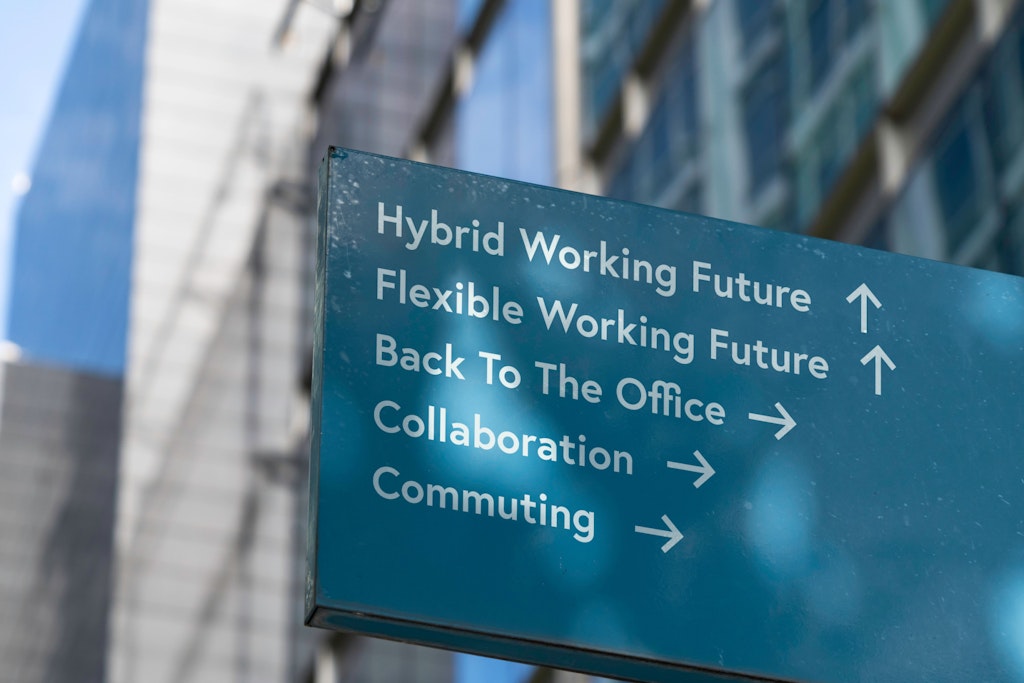Flexible work models linked to higher revenue growth, claims The Flex Index
Published on 15 November 2023

There’s more reason to think that hybrid work policies can positively impact the workplace after recent international data revealed a noticeable difference in revenue between organisations with flexible work policies and those with more restrictive ones.
Key points:
- Scoop, a hybrid workplace management startup company, released The Flex Report Q4 2023 detailing hybrid and remote work statistics in the United States
- Almost 40% of surveyed organisations required full-time office work, 29% offered structured hybrid work (specific days/time in office), while 33% were fully flexible (fully remote or employee’s choice)
- Organisations that allowed employees to choose when they were in the office outperformed on revenue growth during the past three years by 16% compared to companies with restrictive in-office policies
- While it is important to recognise there are hybrid work limitations for the bulk of the aged care workforce, the data highlights the full scope of potential for flexible workplace policies
Hybrid work policies have primarily been viewed as a way to support staff and new/potential hires by offering a better work-life balance with less commute time and more time at home and around family. Some organisations can also see their talent pool grow by sourcing experienced employees from other towns or cities for roles such as administration, marketing or IT.
This analysis of remote work policies and revenue growth adds another layer to the hybrid work model conversation, however, as data from The Flex Index found a noticeable trend.
Fully Flexible public companies outperformed their peers by 16 percentage points on 2020-2022 revenue growth on an industry-adjusted basis. Even excluding Tech, Fully Flexible companies outperform by 13 percentage points,” explained Rob Sadow, Scoop CEO and co-founder.
“That gap was really surprising to us – and larger than expected.”
The companies that have adopted a fully flexible workplace policy where staff can choose when or whether they are in the office achieved an industry-adjusted revenue growth rate of 21%. Companies that mandate set days per week or full-time office work experienced just a 5% growth rate.
Breaking the latter figure down further, even Structured Hybrid companies achieved twice as much revenue growth as Full Time in Office Companies (6% compared to 3%).
Although the data does not explicitly look at the relationship between increased revenue and workplace flexibility, Nicholas Bloom, an economist and Stanford University Professor, told Forbes it paints a strong picture of the connection. He said the focus on worker experiences with remote work, and not corporate policies, is one reason why clear results have not been achieved.
“If I’m reading this [data] as a manager, the interpretation is pretty similar. Flexible employment practices are going to help support growth,” Professor Bloom said.
The return to office push has stalled
With one-third of surveyed companies utilising fully flexible workplace policies, and a similar structured hybrid work, there is a growing consensus that the return to office push has stalled. Companies requiring employees in the office are asking for no more than two or three days per week and most industries have embraced the trend.
- Healthcare & Biotechnology (as paired together by Scoop) has one of the lowest work location flexibility percentages, yet even roughly 60% of companies still offer some flexibility
- Over 75% of Technology, Media & Entertainment and Financial Services offer flexible work location policies, sectors that are incorporated in aspects of aged care
- The likes of Hospitality and Restaurants & Food Services are the least flexible with on-site work an essential part of the role
- Of the companies requiring minimum days in the office, 49% opt for three days and 38% two days
Since the COVID-19 pandemic, there has been a roughly 50% drop in required office time. This has seen many organisations go from requiring their staff to work five days in the office to 2.54 – a figure that has remained steady throughout 2023.
The plateauing is a sign that employers have learnt to trust their employees, according to Debbie Lovich, Senior Partner at Boston Consulting Group. She told Forbes there’s no indication that flexible policies cause higher revenue growth but there is a correlation as it shows the employer trusts workers. Therefore, employee-friendly policies promote positive workplace outcomes, new ideas and efficiency.
“If they’re less restrictive on [remote] work policies, they’re probably more pro-innovation, more purposeful and more engaging. I doubt those companies would be taking attendance and measuring badge swipes,” Ms Lovich said.